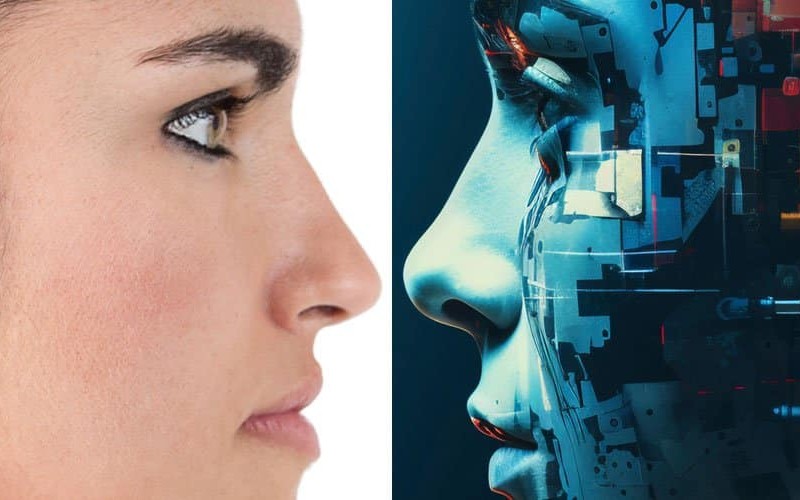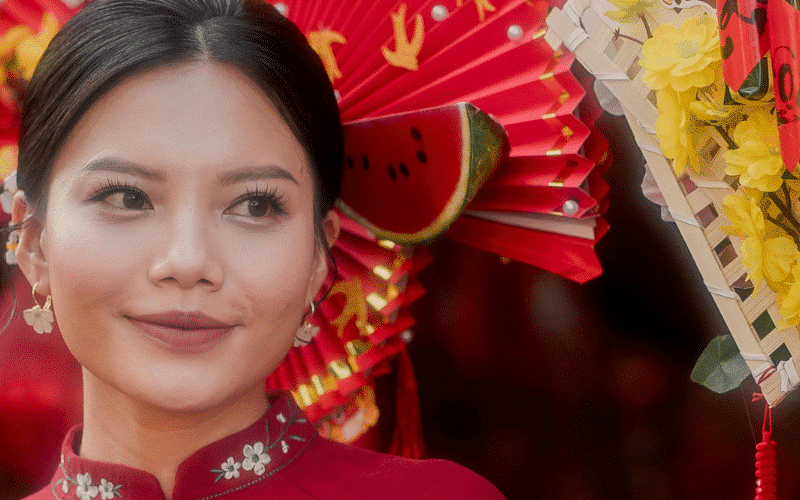AI’s Silent Yet Terrible Influence on Latina Beauty Ideals
Ever scroll through your feed and feel bombarded by flawless, retouched images? These aren’t just pictures; they’re powerful messages shaping our perception of beauty.

Advancements in Artificial Intelligence (AI) are changing nearly every aspect of our lives. There’s no denying that AI is a powerful technology and it has many different applications that are already benefiting us. However helpful AI has the potential to be, it can also affect us in ways that can be difficult to identify. For instance, AI is already affecting the way beauty standards are portrayed without us even realizing it, and it’s quietly changing the way we understand beauty, especially as Latinas.
Behind the seemingly flawless retouched images that flood our social media feeds, there’s the touch of undisclosed AI through automated or manual alteration. This is how AI is contributing to the creation of an idealized version of our appearance as individuals. Every time we see images on social media, we don’t really stop to think if they were retouched or not. We accept what we’re seeing as reality even if we know that social media, for many, is a carefully curated highlight reel.
AI’s infiltration into the beauty industry extends beyond retouching; it encompasses a variety of tools designed to alter and even fabricate appearances. From smoothing skin to altering body shape, the click of a button can transform a photo into an idealized version of beauty. Furthermore, AI-generated content has reached a level of sophistication that’s very difficult to discern from real content. These fabricated images further blur the boundaries between reality and fiction, presenting a surreal standard of beauty that’s only achievable in the digital space.
Photo by mybodyliberation on Instagram
On the surface, these applications of AI technology may seem harmless. After all, editing a photo for social media is something everyone’s done at least once. It’s just about aesthetics, it doesn’t mean much more. However, we have to look under the surface to see that using seemingly harmless AI-powered filters and editing tools perpetuates unrealistic beauty standards. It also contributes to the distortion of our own self-image and it corrodes our sense of body satisfaction and self-esteem. This is a very slippery slope and it’s even more slippery when you’re a Latina.
It’s no secret that algorithms are biased and they often prioritize images that adhere to Western conventional beauty standards. In doing so, they marginalize people who don’t look like “the norm.” Granted, this isn’t new. Western beauty standards have always been prioritized, even before the internet and the age of social media. Latinas and women from other ethnicities have always struggled to find themselves in the media. While some progress has been made in terms of representation, with Latinas, Afro-Latinas, and women from other ethnicities having a bit more of the limelight in recent years, there’s still a long way to go and ideals of beauty are still narrow.
However, we also have to understand the influence we wield and how to use it. Whether we’re aware of it or not, we contribute to the popularity of content that prioritizes conventional beauty standards by engaging with it the most because it’s the most popular. Algorithms can be trained to our advantage and, as Latinas, it serves us to make sure our feeds are relatable to us and champion Latino existence. It’s not just better for our mental health, it also helps us boost Latino content creators, many of whom consistently expose the use of touch-ups, showing us real beauty instead. Curating your social media feed is essential and it can make a huge difference in the way you perceive yourself and others.
Photo by mscleanaddict & thecleanaddicts on Instagram
AI and Sexual Assualt and Harassment
It’s also worth noting that the impact of AI extends beyond limited beauty standards because it’s also used to enact digital violence, disproportionately affecting Latinas. More and more Latin American women are falling victim to the proliferation of AI-generated nude images online, causing not only feelings of shame but also a sense of powerlessness in the face of inadequate legal protections.
Digital violence, including the dissemination of non-consensual intimate images, poses a significant threat to the safety and well-being of Latinas. Despite legal definitions of digital violence, such as Mexico City’s General Law on Women’s Access to a Life Free of Violence, the process of identifying and removing illegal AI deep fakes remains challenging, allowing these harmful images to circulate unchecked for extended periods.
When it comes to navigating AI and the impact it has on our body image, it’s important to support initiatives that promote responsible AI development and curate our social media feeds to maintain diversity. As a collective, we bear some of the responsibility of making sure AI technology is used to foster a more inclusive body image. Instead of contributing to that ourselves by editing our images to fit the Western beauty standard, let’s proudly show who we really are on social media, lift up creators who do the same, and encourage inclusivity with our engagement.













